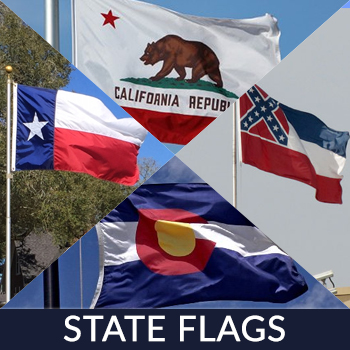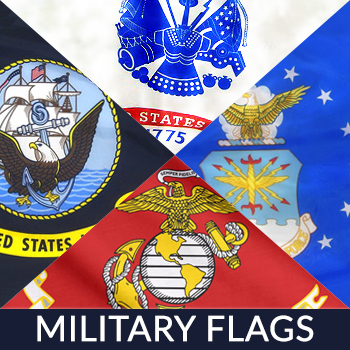As dawn breaks on September 11, the nation will hold its breath, recalling the patriotic actions of American heroes and the not so distant wounds of 2001. Among these memories lies the bravery of passengers on United Airlines Flight 93, whose actions resonated with the courage of minutemen facing the British army in a bygone era. But it is important to understand their are two holidays in the United States with similar names — Patriot Day and Patriots’ Day. Do you know the difference?
Patriot Day 9/11
Patriot Day, observed annually on September 11 since President George W. Bush’s first proclamation, invites reflection on the profound impact of the 2001 terrorist attacks, which claimed nearly 3,000 lives and reshaped national consciousness. As communities come together to honor the victims and first responders, this day serves not only as a somber remembrance but also as a catalyst for discussions on resilience, unity, and the evolving nature of American values. What lessons can we draw from this tragic history, and how might they inform our collective future? The answers may reveal more than just a commemoration of loss.
The Significance of Patriot Day

Why is Patriot Day a significant observance in the United States, serving as a poignant reminder of the resilience and unity that emerged in the wake of the September 11 attacks? This day not only commemorates the tragic events of 2001 but also serves as a catalyst for expressions of patriotism that strengthen the national identity.
As communities come together to honor the lives lost, they engage in civic activities that foster solidarity and mutual support. Patriot Day inspires various forms of community service, encouraging citizens to contribute positively to their neighborhoods. This engagement reinforces the collective memory of the attacks while highlighting the strength found in unity.
Schools, organizations, and individuals participate in remembrance events, ensuring that the sacrifices made are not forgotten. Moreover, the observance prompts reflection on the values that define America, such as freedom, resilience, and compassion.
Historical Overview of September 11

The events of September 11, 2001, stand as a pivotal moment in American history, marked by a series of coordinated terrorist attacks that fundamentally altered the nation’s social and political landscape. Understanding this day requires an extensive historical context that examines the timeline analysis of events leading up to the attacks and their immediate aftermath.
The attacks resulted in nearly 3,000 casualties and prompted an unprecedented response from the U.S. government, including the implementation of the Patriot Act and the initiation of the War on Terror.
Global reactions to these events were profound, with many countries expressing solidarity with the United States, while also grappling with the implications of terrorism worldwide.
The cultural impact of 9/11 is evident in various forms of art, literature, and public discourse, as communities sought to process their grief and loss.
In the wake of the tragedy, memorial architecture emerged as a means to honor the victims and reflect on the resilience of the American spirit, with structures like the National September 11 Memorial and Museum serving as poignant reminders of that fateful day.
Key Events of the 2001 Attacks
On the morning of September 11, 2001, a meticulously planned series of terrorist attacks unfolded, targeting key symbols of American power and resulting in widespread devastation. Operated by the extremist group al-Qaeda, these attacks were driven by complex terrorist motivations, including opposition to U.S. foreign policy in the Middle East.
The attacks were executed through the hijacking of four commercial airliners, leading to significant destruction and loss of life. Key events included:
- The hijacking of American Airlines Flight 11 and United Airlines Flight 175, which struck the North and South Towers of the World Trade Center.
- The crash of American Airlines Flight 77 into the Pentagon, the U.S. Department of Defense’s headquarters.
- The heroic actions of passengers on United Airlines Flight 93, who thwarted the hijackers, resulting in the plane crashing in Pennsylvania rather than reaching its intended target.
In the aftermath, emergency response teams mobilized rapidly, while the nation grappled with new national security measures, leading to profound changes in aviation security.
Global reactions included widespread condemnation of the attacks and solidarity with the United States in its fight against terrorism.
Remembering the Victims

Countless lives were irrevocably changed by the tragic events of September 11, 2001, as we honor the memory of the nearly 3,000 victims who lost their lives that day.
Victim memorials across the nation serve as poignant reminders of the profound loss experienced by families and communities. These sites not only commemorate the deceased but also provide spaces for reflection and healing.
Survivor stories play a vital role in this remembrance, capturing the resilience and courage of those who lived through the harrowing events. Their narratives often intertwine with personal reflections from loved ones, offering insights into the ongoing impact of that day.
Community support has been fundamental in the healing processes that followed 9/11, uniting individuals in their shared grief while fostering an environment of solidarity. Various initiatives, from candlelight vigils to educational programs, guarantee that the memories of the victims endure, reminding us of our collective responsibility to promote peace and understanding.
As we reflect on the past, it is imperative to honor these lives and continue to support those affected by the tragedy, guaranteeing that their legacies live on.
Honoring First Responders
First responders demonstrated extraordinary bravery and selflessness on September 11, 2001, risking their lives to save others in the face of unimaginable danger.
Their heroic acts on that fateful day have left an indelible mark on our collective conscience, reminding us of the unwavering commitment these individuals have to their communities.
The stories of first responders reveal not only their courage but also the extensive emergency training that enables them to act decisively under pressure.
Their resilience building efforts extend beyond the immediate crisis, fostering a sense of community support that empowers citizens in times of need.
- Heroic acts: Numerous first responders rushed into collapsing buildings, showcasing unparalleled courage and determination.
- First responder stories: Personal narratives illustrate the diverse backgrounds and experiences that shape their responses.
- Emergency training: Rigorous preparation equips these professionals to handle emergencies effectively, ensuring public safety.
As we honor these brave individuals, it is essential to recognize the profound impact of their sacrifices and the ongoing need for community support in nurturing future generations of first responders.
Their legacy inspires continued dedication to service and resilience in the face of adversity.
Community Vigil and Tribute

In recognition of the sacrifices made by first responders, communities across the nation gather to hold vigils and tributes, honoring their courage and resilience while fostering a collective spirit of remembrance and solidarity.
These community gatherings serve as a poignant reminder of the events that shaped the nation, providing a platform for individuals to come together in shared grief and support.
Candlelight vigils are a common feature of these events, where participants light candles as symbols of hope and unity. The soft glow of flames creates an atmosphere of reflection, allowing attendees to contemplate the impact of loss and the strength found within community ties.
Local performances, including music and poetry, often complement the solemnity of the occasion, offering artistic expressions of remembrance and healing.
Reflection activities, such as moments of silence and sharing personal stories, encourage participants to articulate their feelings and memories, fostering emotional connections.
Additionally, these gatherings help to strengthen support networks, as individuals find comfort in one another’s presence and shared experiences.
Ultimately, community vigils and tributes serve not only as a memorial but as a powerful affirmation of collective resilience and enduring hope.
Patriot Day Traditions
Patriot Day traditions encompass a range of activities designed to honor the memory of those lost on September 11, 2001, while fostering a spirit of unity and reflection within communities. These traditions encourage individuals and families to participate in meaningful observances that reinforce a collective commitment to remembrance and service.
Common Patriot Day celebrations include:
- Remembrance ceremonies: Many communities hold formal gatherings, featuring speeches, moments of silence, and readings of the names of the victims, emphasizing the impact of the tragedy on lives and families.
- Community gatherings: Local organizations and schools often organize events where residents come together to share stories, engage in discussions about resilience, and strengthen communal bonds.
- Volunteer initiatives: Acts of service are an essential part of Patriot Day traditions, with many choosing to volunteer in their neighborhoods or contribute to charitable causes as a way to honor the fallen.
These family traditions and community activities not only commemorate the lives lost but also promote healing, understanding, and a sense of collective responsibility, ensuring that the lessons of September 11 continue to resonate through future generations.
National Moments of Silence

National Moments of Silence serve as poignant reminders of the lives lost on September 11, 2001, providing a collective opportunity for reflection and remembrance across the nation. These national observances, observed at 8:46 AM—the moment the first plane struck the North Tower—invite individuals, communities, and organizations to pause and engage in silent reflections.
The significance of these moments transcends individual experiences, fostering community engagement and encouraging citizens to come together in shared grief. Through this collective act of remembrance, participants honor not only the victims but also the resilience of those who survived and the solidarity of a nation united in mourning.
Moreover, these observances play a critical role in enhancing public awareness about the events of 9/11 and their lasting impact on American society. They provide a platform for dialogue and education, ensuring that the memories of those lost are preserved in the hearts and minds of future generations.
Educational Programs and Resources
Numerous educational programs and resources are available to help students and communities understand the significance of September 11 and its enduring impact on American history and society. These initiatives focus on educational outreach, providing thorough lesson plans and engaging classroom activities that foster critical thinking and reflection.
Key resources include:
- Resource Guides: Curated materials that provide context, timelines, and personal stories to enhance understanding of the events surrounding September 11.
- Community Workshops: Interactive sessions designed to engage local communities in discussions about resilience, unity, and the lessons learned from this pivotal moment in history.
- Classroom Activities: Engaging projects and discussions that encourage students to explore themes such as heroism, empathy, and civic responsibility.
These programs not only help to educate the younger generation but also encourage a collective memory that honors those affected by the tragedy.
The Role of Media in Remembrance
Utilizing various forms of media, including television, social networks, and print publications, plays an essential role in shaping public remembrance of the September 11 attacks and fostering ongoing dialogue about their significance.
The media portrayal of the events surrounding 9/11 has a profound emotional impact, influencing public perception and collective memory. Through commemorative coverage, media outlets provide a platform for reflection, allowing individuals to engage with the stories of bravery, loss, and resilience associated with that day.
Storytelling methods employed by the media, such as documentaries, interviews, and social media campaigns, serve to humanize the statistics and facts surrounding the tragedy. These narratives not only honor the victims but also contribute to a deeper understanding of the implications of the attacks on American society and global relations.
As anniversaries approach, the media’s role in remembrance becomes increasingly significant, ensuring that the legacy of September 11 remains a topic of conversation and reflection. By highlighting personal experiences and historical context, the media fosters a collective remembrance that encourages empathy and unity in the face of adversity.
Personal Stories of Resilience

Resilience is a powerful theme that emerges from the personal stories of individuals affected by the September 11 attacks, highlighting their capacity to overcome adversity and rebuild their lives in the aftermath of tragedy. These resilience stories serve as poignant reminders of the human spirit’s strength, illustrating how individuals have transformed their experiences into opportunities for personal growth and healing.
Many found solace and strength through communal efforts, as neighborhoods united to support the affected families.
Individuals commenced on personal healing journeys, often sharing their struggles and triumphs to inspire others in similar situations.
Stories of those who lost loved ones or witnessed the events firsthand demonstrate the profound ability to rise above despair.
The narratives of resilience not only reflect personal determination but also emphasize the critical role of community support in the healing process. As survivors navigate their paths, they contribute to a collective understanding of recovery, reinforcing the importance of empathy and solidarity.
These stories encourage others to embrace their own journeys of overcoming adversity, fostering hope and strength in uncertain times.
Patriot Day Around the World

Patriot Day, observed annually on September 11, serves as a poignant reminder of unity and remembrance, extending its significance beyond the United States to resonate with communities around the world.
In various countries, global observances reflect the shared values of resilience and solidarity in the face of adversity.
International reflections on the events of September 11 often take the form of cultural memorials and commemorative gatherings, where individuals and groups gather to honor the lives lost and the heroism displayed during that tragic day.
These events not only pay homage to the victims but also foster a spirit of togetherness among diverse populations.
Solidarity activities are organized in numerous nations, encouraging citizens to participate in moments of silence, candlelight vigils, and community outreach programs.
Such initiatives highlight the universal impact of the tragedy and serve to strengthen bonds across borders.
Worldwide tributes include art installations and public discussions that seek to educate future generations about the importance of empathy and understanding.
Through these collective efforts, Patriot Day transcends geographical boundaries, uniting people in a shared commitment to peace and remembrance.
The Impact on American Policy
In the wake of the September 11 attacks, American policy underwent significant transformations that reshaped national security, foreign relations, and domestic law enforcement practices. The immediate response to the attacks led to a series of legislative and operational changes, primarily focused on enhancing security measures while managing the complex balance between safeguarding civil liberties and ensuring national security.
Key areas of impact include:
- Surveillance policies: The implementation of the USA PATRIOT Act expanded government authority in monitoring communications and financial transactions, raising concerns about privacy rights.
- Counterterrorism strategies: The establishment of the Department of Homeland Security and the integration of intelligence agencies aimed at a more coordinated response to threats, fundamentally altering the landscape of national security.
- Immigration reforms: Stricter immigration policies and practices were introduced, including enhanced background checks and screening processes, which affected the movement of individuals across borders.
While these measures were aimed at preventing future attacks, they sparked a national debate about the extent to which security measures could infringe upon civil liberties, a dialogue that continues to shape American policy today.
Looking Forward: Unity and Hope

A collective sense of unity emerged in the aftermath of September 11, fostering hope for a more cohesive society dedicated to overcoming division and embracing diversity. The tragic events prompted a nationwide response that emphasized community healing, allowing individuals from various backgrounds to come together. This commitment to solidarity has cultivated a recognition of our collective strength, as we harness the power of shared experiences that transcend differences.
Looking forward, it is crucial to channel this unity into actionable future aspirations. By actively engaging in dialogues that promote understanding and inclusivity, we can guarantee that the lessons learned from this tragedy are not forgotten. Rebuilding together requires a concerted effort to address the social divides that persist and to foster environments where every voice is valued.
As we honor the memories of those lost, let us also celebrate the resilience and compassion that emerged from this dark chapter in history. By prioritizing unity and hope, we can create a society that not only remembers but thrives, guaranteeing that the legacy of September 11 inspires future generations to build bridges rather than walls. Together, we can cultivate a culture of peace and mutual respect.
If you’ve found this article helpful, consider sharing it with others using your social account.
Frequently Asked Questions
Is Patriot Day a National Holiday?
No, Patriot Day is not a national holiday but is a great day to set aside time to remember the life-changing significance of the events that happened on September 11.
What Is the Origin of the Name “Patriot Day”?
The name “Patriot Day” reflects historical significance, commemorating acts of valor. Its legislative origins aimed to honor those affected by tragedy, while public perception and cultural impact have evolved, emphasizing unity and remembrance over time.
How Can I Participate in Local Patriot Day Events?
To participate in local Patriot Day events, engage in community involvement by volunteering for remembrance activities, attending local ceremonies, or supporting educational programs. These opportunities foster collective reflection and honor the significance of the day.
Are There Any Specific Symbols Associated With Patriot Day?
Symbols associated with this observance often include flags, candles, and moments of silence, serving as symbolic gestures. These elements enhance remembrance activities, foster community service, highlight historical significance, and encourage personal reflections on the event’s impact.
What Resources Are Available for Mental Health Support on This Day?
On remembrance days, individuals may seek mental health support. Resources include crisis hotlines, community support networks, grief counseling services, and trauma resources, all essential for addressing emotional challenges and fostering resilience during difficult times.
Consider Sharing
If this post has helped you, please take a moment to share it with someone you know in your social accounts or email. The more people who know this information, the better America will be.















